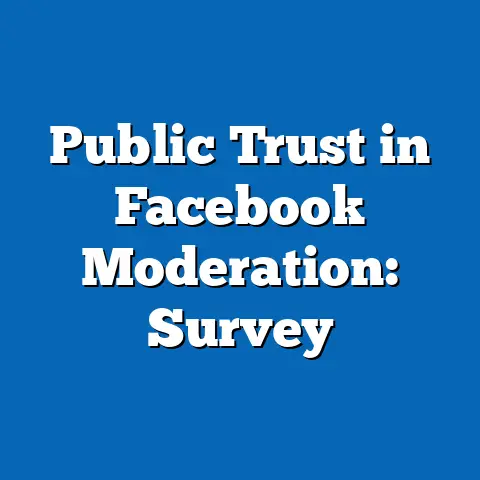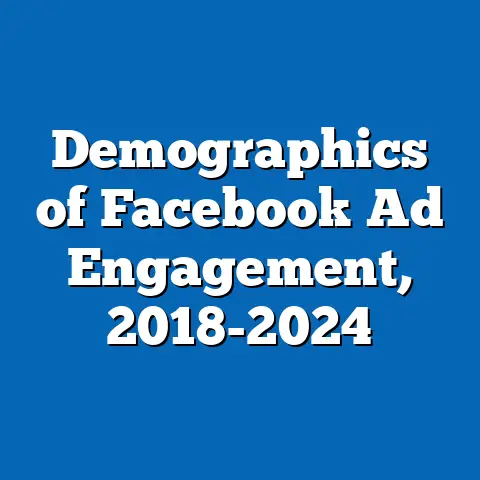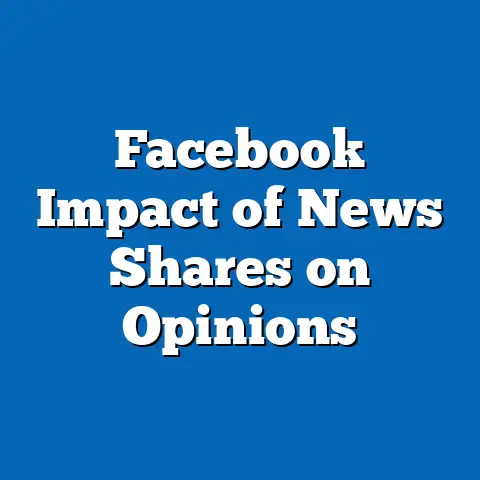Facebook Data Sharing with Third Parties: Risks
What if, in the year 2024, a seemingly innocuous app on your smartphone—perhaps a fitness tracker or a fun quiz game—gained access to your entire Facebook profile, including your private messages, location history, and personal photos, without your explicit knowledge? Imagine this data being sold to a third party, which then uses it to manipulate political campaigns, tailor predatory advertisements, or even influence your personal decisions through psychological profiling. This scenario is not far-fetched; it builds on real vulnerabilities exposed in past data-sharing scandals involving Facebook (now Meta) and raises urgent questions about privacy, security, and trust in the digital age.
As we stand at the cusp of 2024, the risks associated with Facebook’s data-sharing practices with third parties remain a pressing concern. With over 2.9 billion monthly active users as of late 2023, according to Statista, Facebook is a treasure trove of personal information. The platform’s history of data mishandling, coupled with evolving technological and regulatory landscapes, makes it imperative to examine the potential risks and societal implications of its data-sharing practices in the coming year.
Defining Characteristics of Facebook Data Sharing with Third Parties
Facebook’s data-sharing practices with third parties involve the transfer of user information to external entities such as app developers, advertisers, and business partners. This data can include basic profile details (name, age, gender), behavioral data (likes, shares, browsing habits), and even inferred data (predicted interests or political leanings). While users often consent to such sharing through terms of service agreements, the complexity and opacity of these agreements frequently leave them unaware of the full extent of data dissemination.
A key characteristic of this ecosystem is the use of Application Programming Interfaces (APIs), which allow third-party apps to integrate with Facebook’s platform and access user data. Historically, APIs have been a double-edged sword—enabling seamless user experiences while also creating vulnerabilities for data misuse. Additionally, data-sharing agreements often prioritize monetization over privacy, as third parties use this information for targeted advertising, a cornerstone of Facebook’s revenue model, which generated $131.9 billion in ad revenue in 2022, per Meta’s annual report.
Another defining feature is the global scale of data sharing. With users spanning diverse regulatory environments—from the stringent General Data Protection Regulation (GDPR) in Europe to less robust frameworks in other regions—Facebook faces uneven accountability for how data is handled by third parties. This patchwork of regulations complicates oversight and amplifies risks, especially as data crosses borders and jurisdictions.
Historical Context: A Legacy of Privacy Controversies
To understand the risks for 2024, it is critical to revisit Facebook’s history of data-sharing controversies, which have shaped public perception and policy responses. One of the most infamous incidents was the 2018 Cambridge Analytica scandal, where the political consulting firm accessed data from up to 87 million Facebook users without their consent, using it to influence the 2016 U.S. presidential election and the Brexit referendum. This event, uncovered by whistleblower Christopher Wylie and reported by The Guardian, exposed how third-party apps could exploit Facebook’s lax API policies to harvest data on a massive scale.
The fallout was significant: Facebook faced a $5 billion fine from the U.S. Federal Trade Commission (FTC) in 2019, one of the largest penalties ever imposed for privacy violations. Public trust plummeted, with a 2019 Pew Research Center survey finding that 74% of Americans felt Facebook had too much power over personal information. The scandal also prompted tighter API restrictions and the introduction of features like “Data Download” to give users more control over their information.
However, earlier incidents also set the stage for these issues. In 2011, the FTC charged Facebook with deceiving users by sharing data with third parties despite privacy promises, leading to a 20-year consent decree mandating regular privacy audits. Despite these measures, subsequent breaches—such as the 2019 discovery of 540 million user records exposed on unsecured servers by third-party developers—demonstrated persistent vulnerabilities.
These historical events occurred against a backdrop of rapid technological advancement and societal shifts. The rise of social media in the early 2000s transformed how personal data was collected and commodified, while the proliferation of smartphones and apps created new entry points for third-party access. Economically, the digital advertising boom incentivized data sharing, as companies sought granular user insights to maximize ad revenue. Socially, growing reliance on platforms like Facebook for communication and information fostered a trade-off: users exchanged privacy for convenience, often unknowingly.
Technological Factors Amplifying Risks in 2024
Looking ahead to 2024, several technological trends are poised to exacerbate the risks of Facebook data sharing with third parties. First, the increasing sophistication of artificial intelligence (AI) and machine learning (ML) enables third parties to derive deeper insights from even limited datasets. For instance, AI algorithms can infer sensitive attributes—such as sexual orientation or mental health status—from seemingly benign data points like likes or comments, as demonstrated in a 2013 study by the University of Cambridge.
Second, the expansion of the Internet of Things (IoT) introduces new data streams that could be integrated with Facebook profiles via third-party apps. Smart home devices, wearables, and connected cars generate vast amounts of personal information, and if linked to social media accounts, they could provide third parties with unprecedented visibility into users’ lives. A 2023 report by McKinsey estimates that the IoT market will grow to $1.1 trillion by 2025, underscoring the scale of this potential risk.
Third, the persistence of legacy systems and outdated security protocols within third-party ecosystems poses a significant threat. While Meta has improved its own security measures, many smaller developers lack the resources to safeguard data effectively. Cybersecurity firm UpGuard reported in 2022 that misconfigured databases and unsecured APIs remain common among third-party apps, creating easy targets for hackers.
Finally, the rise of decentralized technologies like blockchain and Web3, while promising greater user control over data, could inadvertently complicate oversight of data sharing. If third parties adopt these technologies without clear regulatory frameworks, tracing data flows and holding entities accountable may become even more challenging in 2024.
Economic Incentives and Data Monetization Pressures
Economically, the risks of data sharing are deeply tied to the business models of both Facebook and its third-party partners. Meta’s reliance on advertising revenue—projected to reach $150 billion by 2024, according to eMarketer—creates a strong incentive to maximize data collection and sharing. Third-party apps and advertisers, in turn, depend on this data to deliver personalized content and drive conversions, perpetuating a cycle of data commodification.
This economic dynamic often prioritizes profit over privacy. For example, smaller developers may sell user data to offset development costs, while larger corporations use it to gain competitive advantages. A 2022 study by the Electronic Frontier Foundation (EFF) found that over 70% of popular third-party apps on Facebook requested access to sensitive user data, often beyond what was necessary for their functionality.
Moreover, economic disparities between regions influence data-sharing risks. In developing countries, where digital literacy and regulatory protections may be limited, users are more vulnerable to exploitation by third parties. This creates a global imbalance, where the economic benefits of data sharing accrue to a few while the risks disproportionately affect the most vulnerable populations.
Social and Cultural Dimensions of Data Sharing Risks
Socially, the risks of Facebook data sharing in 2024 are compounded by shifting attitudes toward privacy and trust in technology. While younger generations, such as Gen Z, are often seen as more tech-savvy, a 2023 survey by the Center for Digital Democracy found that 62% of 18- to 24-year-olds express concern about how social media platforms handle their data. This wariness stems from high-profile breaches and a growing awareness of digital footprints, yet many continue to use platforms like Facebook due to social pressures or lack of alternatives.
Culturally, differing norms around privacy influence how data-sharing risks are perceived and addressed. In collectivist societies, where personal data may be seen as less private, users might be more willing to share information, increasing exposure to third-party misuse. Conversely, in individualistic cultures with strong privacy traditions, such as parts of Europe, resistance to data sharing is higher, as evidenced by widespread support for GDPR-like regulations.
The societal impact of these risks is profound. Data misuse by third parties can undermine democratic processes, as seen in the Cambridge Analytica case, by enabling microtargeting and misinformation campaigns. It can also exacerbate social inequalities, as marginalized groups are often disproportionately targeted by predatory advertising or data-driven discrimination, according to a 2021 report by the Algorithmic Justice League.
Regulatory Landscape and Its Limitations in 2024
The regulatory environment surrounding data sharing is a critical factor shaping risks for 2024, yet it remains fragmented and unevenly enforced. In the European Union, GDPR imposes strict requirements on data processors, including third parties, with fines of up to €20 million or 4% of annual revenue for non-compliance. Since its implementation in 2018, GDPR has led to over $1.7 billion in fines, with Meta alone facing penalties of $1.3 billion in 2023 for unlawful data transfers, per the Irish Data Protection Commission.
However, outside the EU, protections are often weaker. In the United States, there is no comprehensive federal privacy law as of late 2023, though state-level regulations like the California Consumer Privacy Act (CCPA) offer some safeguards. This regulatory patchwork creates loopholes that third parties can exploit, especially when operating across borders.
Moreover, enforcement challenges persist even in regions with robust laws. Regulatory bodies often lack the resources to monitor the vast ecosystem of third-party apps, and Meta’s self-reporting mechanisms have been criticized as insufficient by privacy advocates like the Electronic Privacy Information Center (EPIC). As new technologies emerge, regulators struggle to keep pace, leaving gaps that could widen risks in 2024.
Specific Risks Projected for 2024
Building on these technological, economic, social, and regulatory factors, several specific risks stand out for 2024. First, the potential for large-scale data breaches remains high, particularly as cybercriminals target third-party apps with weaker security. A single breach could expose millions of users’ data, leading to identity theft, financial loss, or reputational damage.
Second, the misuse of data for political manipulation is a growing concern, especially with major elections scheduled in 2024, including the U.S. presidential election and national votes in India and the EU. Third parties could leverage Facebook data to spread disinformation or influence voter behavior, echoing past scandals but on a potentially larger scale due to advancements in AI-driven targeting.
Third, the risk of psychological profiling and behavioral manipulation by third parties is increasing. As AI tools become more accessible, even small-scale actors could use Facebook data to exploit vulnerabilities, such as targeting individuals with mental health struggles through tailored ads, as warned in a 2023 report by the World Health Organization.
Fourth, economic exploitation through data-driven price discrimination or predatory lending could intensify. Third parties might use Facebook data to identify financially vulnerable users and offer exploitative products, disproportionately harming low-income populations, according to research by the Consumer Financial Protection Bureau.
Finally, the erosion of trust in digital platforms could have cascading societal effects. If data-sharing scandals proliferate in 2024, public cynicism toward technology may deepen, potentially stifling innovation or driving users toward less regulated, riskier alternatives.
Implications for Society, Culture, and the Workplace
The societal implications of these risks are far-reaching. At the individual level, data misuse can lead to loss of autonomy, as personal choices are increasingly shaped by opaque algorithms and third-party agendas. Culturally, persistent privacy violations may normalize surveillance, reducing societal expectations of personal boundaries in the digital realm.
In the workplace, data sharing poses unique challenges. Employers increasingly use social media data—often accessed through third parties—to screen candidates or monitor employees, raising ethical questions about consent and fairness. A 2022 study by the Society for Human Resource Management found that 68% of HR professionals use social media for recruitment, yet only 34% have clear policies on data privacy.
For businesses, the risks of data sharing extend to reputational and legal liabilities. Companies that partner with Meta or rely on third-party data must navigate a minefield of regulatory compliance and public scrutiny. A single misstep could result in consumer backlash or costly litigation, as seen with firms implicated in past Facebook scandals.
Globally, data-sharing risks could strain international relations, particularly if breaches or misuse are linked to state actors or cross-border espionage. The 2023 Meta fine for data transfers to the U.S. highlighted tensions between EU and U.S. data policies, a dynamic that could intensify in 2024 amid geopolitical instability.
Diversity and Nuances Within User Experiences
It is important to acknowledge the diversity of experiences and vulnerabilities among Facebook users when assessing data-sharing risks. Age, socioeconomic status, digital literacy, and cultural background significantly influence how individuals perceive and are affected by these risks. For instance, older users may be less aware of privacy settings, making them more susceptible to third-party exploitation, while younger users might share more data willingly but face long-term consequences as their digital footprints grow.
Geographic disparities also play a role. Users in regions with limited internet access or regulatory oversight may lack the tools to protect their data, while those in tech-savvy areas might still fall victim to sophisticated scams or hidden data-sharing practices. A 2023 report by Access Now highlighted that users in the Global South are often disproportionately affected by data breaches due to weaker local protections.
Additionally, marginalized communities—such as racial minorities, LGBTQ+ individuals, or political dissidents—face heightened risks from data misuse. Third parties could use Facebook data to target these groups with harassment, discrimination, or surveillance, amplifying existing social inequalities.
Forward-Looking Insights and Uncertainties
As we approach 2024, mitigating the risks of Facebook data sharing with third parties will require a multi-pronged approach. For Meta, this means enforcing stricter API controls, enhancing transparency around data-sharing agreements, and investing in user education to promote informed consent. Third-party developers must be held to higher security standards, with mandatory audits and penalties for non-compliance.
Regulators, meanwhile, must prioritize harmonizing global privacy frameworks and increasing resources for enforcement. Emerging technologies like AI and IoT necessitate updated policies that address new data-sharing vectors, while public-private partnerships could foster innovation in privacy-preserving technologies, such as federated learning or differential privacy.
Individuals also have a role to play by adopting privacy best practices—limiting app permissions, regularly reviewing data settings, and advocating for stronger protections. However, systemic change cannot rely solely on user vigilance; structural reforms are essential to address the power imbalances inherent in the data economy.
Looking ahead, several uncertainties remain. Will Meta’s ongoing pivot to the metaverse introduce new data-sharing risks, as virtual environments collect even more intimate user information? How will geopolitical tensions and economic pressures shape regulatory responses to data privacy? And can public trust in platforms like Facebook be rebuilt, or will disillusionment drive users toward decentralized alternatives with their own set of challenges?
Conclusion
The risks of Facebook data sharing with third parties in 2024 are a complex interplay of technological advancements, economic incentives, social dynamics, and regulatory gaps. From the potential for large-scale breaches to the societal impact of political manipulation and psychological profiling, these risks threaten individual autonomy, cultural norms, and global stability. Historical precedents like the Cambridge Analytica scandal serve as stark reminders of what is at stake, while emerging trends underscore the urgency of proactive measures.
While solutions exist—from stricter oversight to user empowerment—the path forward is fraught with uncertainties. As we navigate this evolving landscape, a balanced approach that prioritizes privacy without stifling innovation is critical. Only through collaborative efforts among platforms, regulators, and users can we hope to mitigate the risks of data sharing and build a digital future grounded in trust and accountability.





